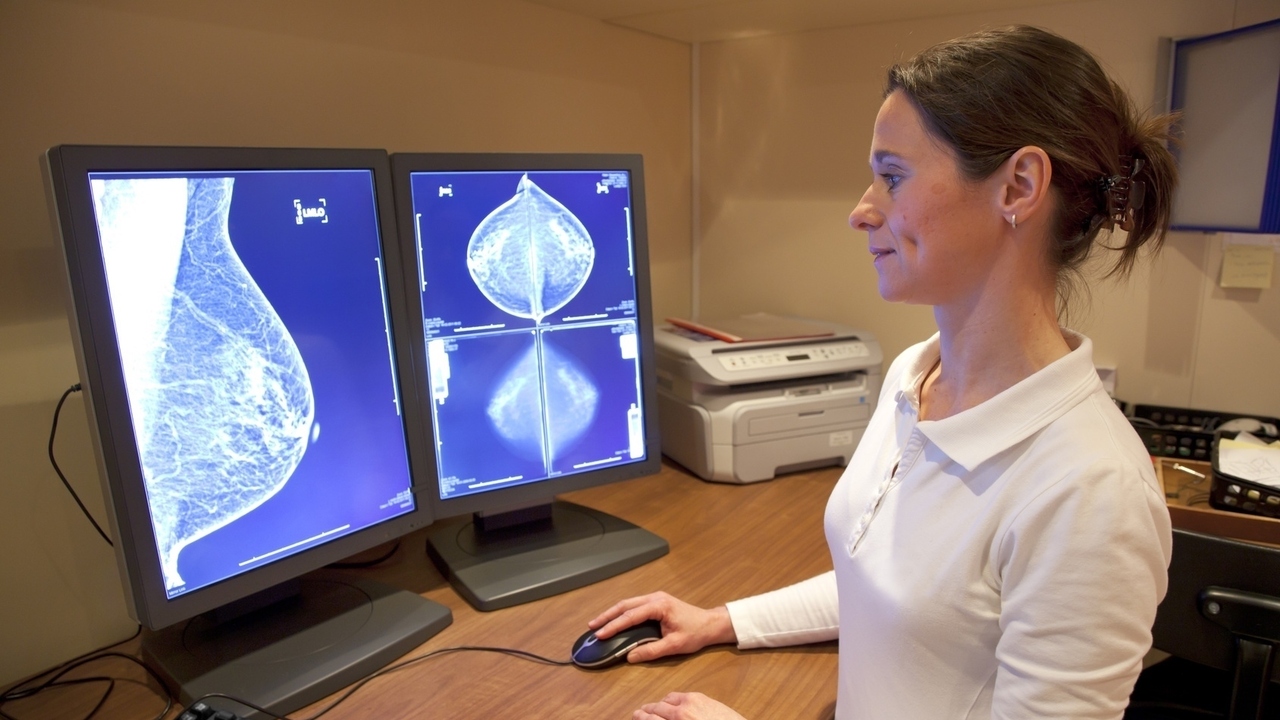 Picture Partners/Fotolia
Picture Partners/Fotolia
For women, going for a mammogram stirs up a variety of emotions. We're afraid of getting breast cancer — for many it is the disease we fear most. But we dislike the discomfort of getting a mammogram and we have concerns about its accuracy.
This leads us to wonder:
Are mammograms our only option for breast cancer screening?
The short answer is that it is best option we currently have, though mammography is not perfect.
"Early detection is not prevention, it's finding cancers that are already there. And it doesn't work very well in young women because young women have dense breasts on a mammogram. So, the breast tissue is white and the cancer is white so it's like looking for a polar bear in the snow," said Dr. Susan Love, surgeon and breast cancer activist. (1)
She went on to explain that once a woman goes through menopause, breast tissue changes from being able to produce milk to becoming predominately fat.
This makes detection of malignant tumors much easier and mammograms become “a great tool,” Love said.
These findings led to the changes in mammogram recommendations by the United States Preventive Services Task Force (USPSTF).
They “recommend biennial screening mammography for women 50-74 years.”
Women younger or older should follow guidance from their health practitioners, and make personal decisions about the benefits and harms of mammograms based on their own individual risks. (2)
What about breast self-exams?
For many years, we were encouraged to give ourselves breast self-exams monthly.
But, according to Susan G. Komen, the evidence does not support the idea that breast self-exams contribute to early detection and increased survival.
“Women who did BSE had more false positive results, leading to nearly twice as many biopsies with benign (not cancer) results as women who did not do BSE.” (3)
However, you know your own breasts so if you want to continue, do so. No one is going to stop you. If you find a change, see your health provider to further plan what to do.
What about BRCA testing?
BRCA testing is genetic testing to determine if you have an inherited mutated gene that may lead to breast cancer. BRCA testing is not applicable to everyone.
According to Susan G. Komen, “Most women who get breast cancer do not have an inherited gene mutation. Five to 10 percent of breast cancers in the U.S. are linked to an inherited gene mutation.”
You can read about who should be screened here.
What about MRIs, ultrasounds and thermography?
MRIs are used in addition to mammography, not as a substitute for it. MRIs are used to evaluate higher-risk women women, and to diagnose those with breast cancer.
You can read more here.
Ultrasound uses sound waves, and is often used in conjunction with a MRI, mammogram or breast exam to see a specific area better. It may also be helpful in performing a biopsy.
Read more about breast ultrasound here.
“Thermography uses infrared light to measure temperature differences on the surface of the breast. Breast cancer may cause abnormal heat patterns. However, there is no solid scientific evidence that thermography measures of heat can help find breast cancers” says Susan G. Komen.
What should you do?
You need to do what makes you most comfortable. You can take the Breast Cancer Surveillance Consortium (BCSC) Risk Calculator to see what your risk is.
Discuss your results and options with your health provider. Continue to have mammograms.
Decide the age and frequency you wish to start if you are under age 50, and have them regularly if you are age 50-74. If you are over the age of 75, you again have a personal choice and comfort level as to what schedule you want to continue having them.
Remember, we don’t know exactly what causes breast cancer. We can only try and find out if we have it before it does us harm.
Michele is an R.N. freelance writer with a special interest in woman’s healthcare and quality of care issues.
Edited by Jody Smith
1) Dr. Susan Love ('98) Seeks to Eradicate Breast Cancer. Foundation seeks a million female volunteers for research studies. UCLA Anderson School of Management. Retrieved July 21, 2016.
http://www.anderson.ucla.edu/media-relations/2010/dr-susan-love
2) Breast Cancer: Screening. Release Date: January 2016. US Preventive Task Force.org. Retrieved July 21, 2016.
http://www.uspreventiveservicestaskforce.org/Page/Document/UpdateSummaryFinal/breast-cancer-screening1
3) BREAST SELF-EXAM. Susan G. Komen. Retrieved July 21, 2016.
http://ww5.komen.org/BreastCancer/BreastSelfExam.html
4) EMERGING AREAS IN EARLY DETECTION. Susan G. Komen. Retrieved July 21, 2016.
http://ww5.komen.org/BreastCancer/EmergingAreasinEarlyDetection.html
5) Annual Mammograms Won't Lower Your Risk Of Dying From Breast Cancer. Here's What Will. Prevention.com. Retrieved July 21, 2016.
http://www.prevention.com/health/this-will-reduce-your-risk-of-dying-from-breast-cancer





Add a CommentComments
There are no comments yet. Be the first one and get the conversation started!